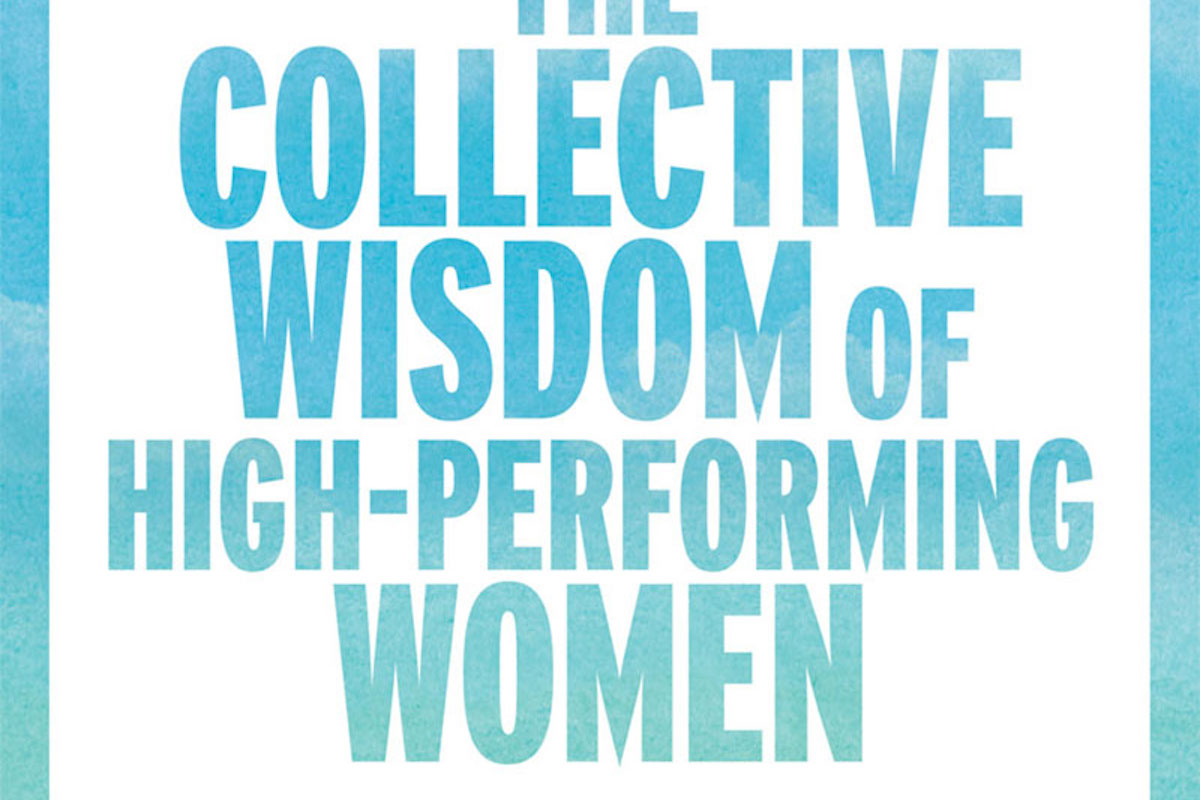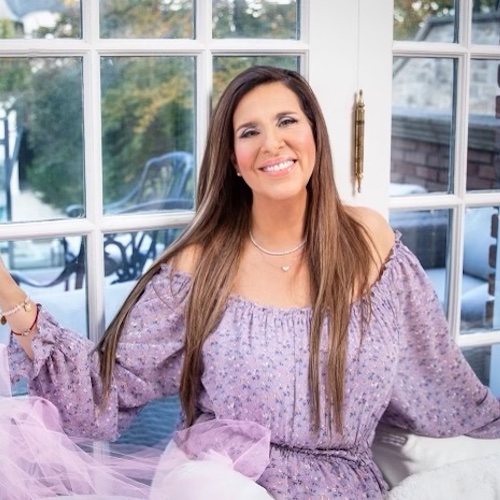
Leadership Lessons from The Judy Project are woven into this important new book from Canada’s Top Women Business Leaders. If any of you are following me on Instagram, @theblissminute, you’ll recognize the name of the book I’m going to be writing about here, as I’ve recently posted two Bliss Minute Videos on the book and even devoted my “story” to it and that book is: The Collective Wisdom of High-Performing Women, Leadership Lessons from the Judy Project, edited by Colleen Moorehead.
So why the attraction to this book? Well, for one, it resonates with me on so many levels. But let’s start with the fact that my late father, Herbert E. Siblin was a highly respected and deeply revered chartered accountant and businessman, who possessed a lot of the values that are talked about in this book.
This book grew out of the leadership lessons from Judy Elder, a phenomenal Canadian businesswoman who died suddenly at age 47 of a rare blood disorder and just a few short weeks before she passed away, she gave an incredibly powerful speech about women and ambition, not ambition for oneself, but for her company and essentially about how we win when everyone wins. Her outward focused, generous and inclusive attitude was so compelling, because instead of trying to get ahead herself, she was far more interested in the greater good. She was so inspirational that after she passed, Colleen Moorehead, the Chief Client Officer of Osler Hoskin & Harcourt LLP, founded the Judy Project, (a Canadian executive forum offered by the Initiative for Women in Business at the University of Toronto’s Rotman School of Management), that was created in Judy Elder’s memory to keep the flame alive of this wonderful idea that women could help other women, and that ambition instead of being about the self, could be about the collective.
So 70 women participate in this book, and weave their beautiful and compelling personal stories together about the sometimes difficult choices they’ve had to make balancing their personal and professional lives. But the wonderful thru line is the optimism and hope the women are giving a new generation of businesswoman to know that they can be successful without being ruthless, and they can be winners using the best values, so that they feel good about themselves both in and out of the boardroom.
These women in this book are paving the way for a whole new generation of younger women and becoming role models for future generations of business women who can be strong without being strident. The new definition of a leader is one who employs characteristics such as honesty, kindness and compassion, once seen as feminine weaknesses in an organization, and now instead, they are using these positive values to strengthen organizations, rather than undermine them.
So what are the values that make up the chapters of this book? There are 10 characteristics of great leaders and the 70 women’s personal stories are interwoven into the tapestry of the book, using these values. They are:
- Courage
- Honesty
- Connection
- Compassion
- Energy
- Lifelong Learning
- Tenacity
- Reinvention
- Generoisty
- Authenticity
In each woman’s story, like in a tapestry, there is a beautiful fabric, or a colour that stands out and catches the light. In Carol McNamara’s story, (Senior VP, Compensation & Benefits, RBC), the theme of her piece is the Courage to Take Time Out For Family. She writes: “Career isn’t necessarily linear — it can be a series of recalibrations of priorities. It took giving it up to realize that I was missing an important source of positive energy. And I learned through my experience that how one measures ambition and success is very personal.”
This struck such a chord in me as for many years, I was a stay-at-home mom and loved every minute of it and it is only now, that my children are in university that I am venturing back into the workplace, and have gone back to school, and even though I am loving the challenge, there are times where I wish I was at home and it’s all a very fine and delicate balance. I love how McNamara writes about the recalibration of priorities. Brilliant!
Speaking up for What’s Right For You, is a wonderful stitch in time in the book, by Shelley Lazarus, Chairman Emeritus, Ogilvy & Mather, who had to explain that when an all day meeting was being scheduled for a big client, that she wouldn’t be able to get there until 1 pm, because it was “Field Day” at her son’s school. When her colleague asked if she was kidding, she assured him that she definitely wasn’t. But it was this line that was the magic woven into her personal story: “So I say, speak up. Be who you are. Live your values. I never snuck out to attend the school play or go to the pediatrician appointment; instead, I walked straight down the centre aisle. And the truth is, that in 35 years, no one ever confronted me about it. The lack of courage to speak up about what’s right for you and for your family is perhaps the biggest obstacle we, as women, put in our own way.”
Kimberley Armstrong, Deputy City Manager, Employee Services Department, City of Edmonton, writes about making emotional connections. She suggests to try this: “Before meetings, my team regularly does what I call a “round”. We go around the room and people talk about how they’re feeling today, what’s on their mind — maybe their dog died, or their sister got engaged. Whatever it is people mention, you’ll learn so much about your colleagues through these quick moments of sharing. What are you watching on Netflix? What’s on your iPod? In other words, instead of assuming that connections will happen naturally, we can foster them.”
I also love that she says, and here’s the Bliss Moment, that “You can go to work unhappy every day, or you can do your best to find points of engagement with people.”
More common threads that weave magic into the book is Marlene Cepparo (Partner, KPMG) and her piece on Helping Other’s Move Up. “The part of my job that delights me immensely is seeing one of my senior managers become a partner or hearing someone tell me that I made a difference in their career. Being a good mentor is easy once you realize that everyone is really good at something, and all you have to do is figure out what that something is — and then step out of the way as they shine.” This inspirational book not only honours the memory of Judy Elder, but it will inspire women and men alike on how important diversity, gender equality and value based leadership are, but mostly the book shows the magic that can happen when you bring love and humanity into the workplace. This in a word, is bliss.
This exceptional book is available on Amazon.
We’d love to hear from you! Please send us your suggestions for future articles. And if you’re a writer, please see our writer’s submissions page for details.

